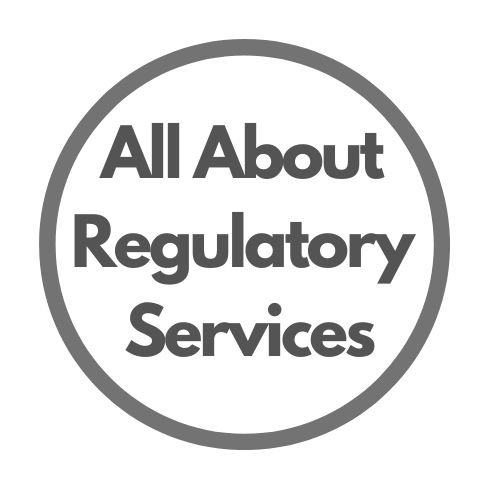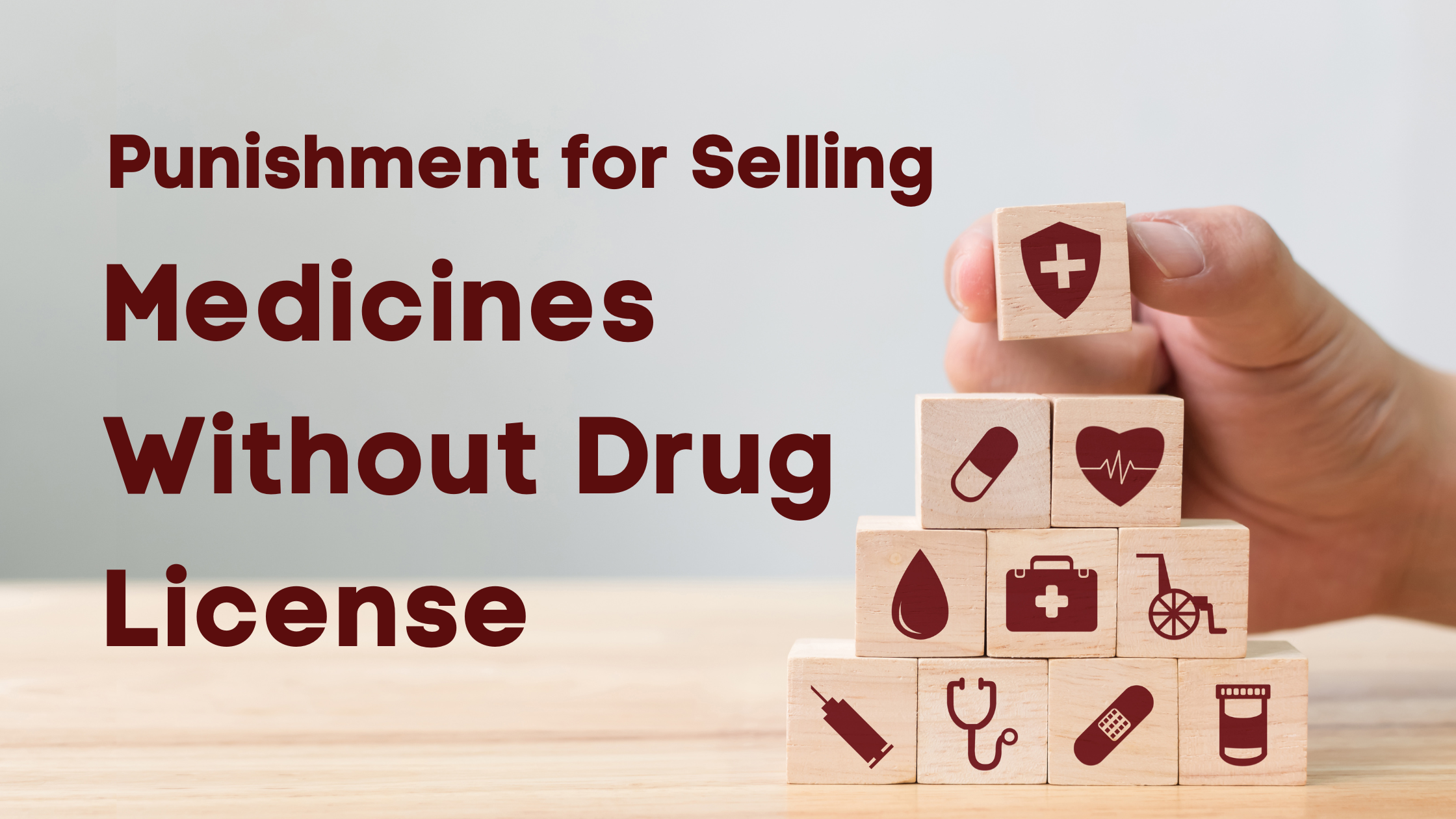Penalty for Unauthorized Sale of Medications without a License
Obtaining a drug license in India is straightforward but can be lengthy. Starting a pharmaceutical business requires strict adherence to the drug license process, which is the first step in obtaining permission from the relevant state authority to commence a pharmaceutical business and conduct activities within the pharmaceutical industry.
Individuals must secure a drug license before venturing into any business linked to the pharmaceutical sector, whether directly or indirectly. Neglecting to acquire this license in India could prove to be a costly blunder, leading to severe penalties and legal consequences.
To protect the health of our nation and combat drug abuse effectively, ensuring unhindered access to medications is crucial.
Uncover the essential details of the Drug License Process and its indispensable role for individuals navigating the Pharmaceutical Industry. Explore the diverse array of drug license authorities’ issues and grasp the severe repercussions of unauthorized medicine sales.
Importance of Drug License
Before patient consumption, drugs must undergo a stringent process involving various stages of testing and observation, including laboratory experiments, clinical trials, marketing evaluations, and sampling. In India, compliance with the Drug License Process is obligatory for establishing a business in Drugs and Cosmetics.
Your drug License, exclusively designed for manufacturers, retailers, wholesalers, and distributors in the industry, unlocks the door to legitimate pharmaceutical operations.
Your license is granted by the respective State Drug License Authority as per the Drugs and Cosmetics Act of 1940 stipulations. This comprehensive Act serves to consolidate all drug-related legislation, undergoing an amendment in 1964 to encompass Ayurvedic and Unani Drugs.
Key Factors to Obtain a Drug License in India
Working Space – Thinking about opening a medical shop? You’ll need a minimum area of 10 square meters to accommodate everything. And if you’re considering diving into pharmaceutical wholesale, make sure you have a spacious 15 square meters for storage and operations.
Note: Unlock your licensing potential! Ensure your workspace (Premise) meets the requirement of at least 10 sq.mtrs for both Form 20 and 21. Don’t forget that these criteria are crucial for Form 20-B or Form 21-B licenses, too!
Proper Space for Storage
Ensure the effectiveness of your medicines and vaccines by storing them properly. A/C and refrigerators are crucial for maintaining the required cool temperatures.
Expertise Staff
A qualified and experienced individual is essential for efficiently operating a pharmacy business.
Proper License by the State Authority
After the Drug license process is completed, the State Drug License Authority provides its seal of approval, affirming your legitimacy.
Types of Drug License in India
The classification of Drug licenses is contingent upon the nature of the business entity, comprising two primary categories –
Manufacturing License
Unlock the potential of pharmaceutical manufacturing with the Manufacturing Drug License, which grants authority under the esteemed Drugs and Cosmetics Act of 1940 to produce a wide range of Allopathic, Ayurvedic, and Cosmetic products.
Sale and Loan License
The Loan License is specifically issued to applicants who do not possess their own working area but plan to use the manufacturing facilities provided by another licensee.
The Sale Drug License is obtained by retailers and wholesalers engaged in drug distribution within India. This includes both the Wholesale Drug License and Retail Drug License. A minimum area of 10 sq. mtrs and proper storage facilities are required to obtain the Sale Drug License.
In addition to the aforementioned license types, it’s worth noting the existence of various other categories of Drug Licenses –
Import Drug License
The Import Drug License is bestowed upon applicants engaged in importing goods for drug manufacturing or the distribution of Imported Drugs.
Multi-Drug License
Expand your reach with the Multi-Drug License, which enables you to conduct business seamlessly across multiple states and ensures compliance with location-specific licensing regulations.
Steps Involved in Drug License Process in India
Master the Drug License Process with these critical steps. Despite its time requirements, direct application to the Government is a viable path forward.
To obtain a User ID and Password
The applicant must submit a request letter and firm details in person to obtain a user ID and password.
Submission of requisite documents
Applicants must upload properly scanned documents (100 dpi, black and white) and apply electronically. The authority reserves the right to request any missing documents.
Documents Required Along With The Application
For companies, please furnish the Memorandum of Association/Article of Association. For firms, kindly submit the Partnership Deed.
- Applicants are required to submit proof of their identity and address.
- Provide proof of workplace (property papers for owned property or lease agreement).
- Submission of the area and layout plans for the premises is necessary.
- Please provide detailed information about the refrigerator intended for storage, including its make, model, capacity, and any specific features relevant to storage.
- Attaching an affidavit regarding MPD 2021 compliance is necessary if the premise is situated on a DDA residential flat/plot/building.
Note: Retail Sale Registered Pharmacists and Wholesale Competent persons must submit additional documents, including Proof of Qualification, Pharmacy Registration, and Appointment Letter.
Follow up with the Authority
Applicants are advised to follow up regularly with the relevant authority for updates. Please note that if the Government rejects the application, the fees will be forfeited.
Complete review of the Application
The department anticipates requiring 45-60 working days to review and approve the application thoroughly.
Punishment for Selling Medicines Without a Drug License
Running a business without a drug license isn’t just risky—it’s illegal. Violating licensing regulations can result in fines, legal penalties, and even imprisonment. Dive into this article for a detailed look at the consequences of non-compliance.
Penalties For Medicine Sales Without a Drug Licensee
Under Section 18(c), individuals who sell medicine without a Drug license and fail to adhere to licensing procedures are subject to punishment.
The Drugs and Cosmetics Act of 1940 sets strict regulations for selling medicines, ensuring their safety and efficacy. Without a proper drug license, businesses risk not only legal repercussions but also compromising public health. Learn more about compliance and avoid the consequences if you are involved in the unauthorized sale of medications –
Imprisonment
Offenders who engage in the unauthorized sale of medicines without a proper drug license may face imprisonment as a penalty, with the sentence’s duration contingent upon the offense’s severity.
Fines
Monetary penalties are a common repercussion for the unauthorized sale of medicines. The magnitude of the fine is contingent upon the characteristics and scope of the transgression and may constitute a substantial sum.
Confiscation of Goods
Authorities possess the legal authority to seize and confiscate medicines sold without the requisite license, which may entail the removal of the entire stock from the premises.
Business Closure
In addition to fines and imprisonment, establishments engaged in the unauthorized sale of medicines may be subject to closure, serving as a preventive measure against continued unlawful activities.
Legal Proceedings for Selling Medicines Without a Drug License
Legal proceedings against those engaged in the illicit sale of medicines often involve –
- thorough investigation,
- issuance of notices and warnings,
- formal filing of charges,
- attending court hearings, and
- receiving sentencing from the judge.
Preventive Measures To Avoid Consequences Of Selling Medicines Without a Drug License
To evade the severe ramifications of selling medicines without proper authorization, businesses ought to:
- Ensuring your business obtains the appropriate licensing and complies with regulatory requirements is imperative.
- It is essential to update licenses regularly to accommodate any alterations in business operations.
- It is imperative to conduct exhaustive due diligence when entering into agreements with suppliers and distributors.
- Maintain awareness of changes in drug regulations and legal obligations.
Engaging in the unauthorized sale of medicines without a drug license constitutes a severe offense, resulting in significant legal penalties. Adhering to regulatory protocols and acquiring requisite permits are essential for pharmaceutical enterprises to ensure legal conformity and consumer welfare.

